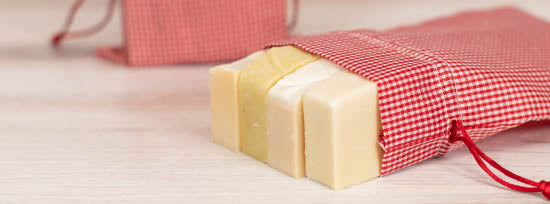Wrinkles, lines, dark spots, and even skin cancer are all attributed to underlying oxidative stress. Your body is designed to defend against oxidation. But when the damage from weather conditions, everyday pollution, or UV rays exceed the antioxidants present in your body, oxidative stress begins to proliferate and damages your skin.
What is oxidative stress?
Oxidative stress is the harm caused by free radicals.
Oxygen is a good thing, right? You know that you can only live a few minutes without oxygen. Oxygen is essential to life, but it can also be harmful to life.
Every cell in your body takes in oxygen and uses it to produce energy and proteins. This energy production has a harmful byproduct - free radicals.
A free radical is simply an oxygen molecule with an odd number of electrons. The problem occurs because free radicals want to have an even number of electrons. Because of this, free radicals go around your body trying to steal electrons from other molecules. And this damages these other molecules.
Free radicals are not always a bad thing. They play important roles in our health. Free radicals perform helpful tasks like killing bacteria and they can form connections between fibers of collagen in the skin.
But when free radicals connect with sensitive molecules like fats, protein or even DNA, they can not only harm these important molecules, they can also rapidly create more free radicals.
If an overabundance of free radicals in your body begins harming more and more cells at a rate that your body cannot control, damage will start to occur to your body.
This damage is called oxidative stress. Internally, oxidative stress can lead to many various health issues. Externally, it can cause premature aging, skin damage, and even skin cancers.
A common example of oxidative stress is when you cut open an apple. The browning of the apple slice is oxidative stress. Rust on metal is another example of oxidative stress.
How can you prevent oxidative stress on your skin?
Your skin is your first line of defense against environmental pollution, UV rays, and adverse weather conditions. It is the largest organ in your body and is designed to keep you healthy. But it is subject to a large amount of oxidative stress.
When your skin gets exposed to damage it produces enzymes, creates oxygen metabolites (this increases the stability of the membrane in the skin) or employs mechanisms that can repair DNA.
All these defenses work in concert to reduce the effects that oxidative stress puts onto your body. But the skin's strongest defense against oxidative stress is the antioxidant system.
Antioxidants are plant-based solutions and include vegetables, fruit, vitamins A, E, and C, selenium, and zinc. You can ingest healthy foods containing these antioxidants or you can use them topically on your skin to protect skin cells, preventing oxidants, and improve skin cell turnover.
Antioxidants bind free radicals by giving them an extra electron. Once they have an even number of electrons, free radicals stop their seeking mission which prevents them from harming tissues and cells.
Unfortunately, free radicals reproduce, sometimes faster than our bodies can handle, especially when we expose our skin to extra harm from chemicals in our skincare products.
If your body doesn't have enough antioxidants to "neutralize" the free radicals, then your body will experience oxidative stress.
One simple solution is to reduce your exposure to chemicals such as those found in detergents. Switching to natural laundry soap, or antioxidant-rich natural goat milk soap will reduce your oxidative stress.
Anti-aging products containing the power of antioxidants are flooding the market, with good reason. We are increasingly exposed to oxidative stress through many chemical-based soaps, detergents and UV rays.
Another solution is to increase your intake of fruits and veggies. This is a great way to care for your skin, but it has been discovered that washing with skincare products containing antioxidants is several times more efficient at preventing oxidative stress on your skin than consuming antioxidants through good food choices.
Reconsider our previous example of a browning apple slice showing oxidative stress in action. When you apply lemon juice to the apple after it has been cut, the browning does not occur. Lemon juice contains vitamin C, a powerful antioxidant, and it prevents the apple slice from experiencing oxidative stress.
Goat milk contains many antioxidant properties. Using goat milk soap made with healthy raw goat milk is a great way to improve your skin and help fight the oxidative stress your skin experiences.
"My skin has never felt so smooth, moisturized, and healthy!" - Christine
"My face looks and feels so much better than when I used my expensive make-up routine cleansers. It is gentle and I don't have any redness or irritation at all. I'm 65 and my complexion looks more healthy. I'm definitely going to be a repeat customer!" - Marsha
Have you noticed any improvements in your skin after using goat milk soap? Let us know your experience below!
Last updated: 8 August 2023


2 Responses
Goat Milk Stuff
Hi Regina, Congrats on finishing chemo! I said a prayer for you for full healing. We don’t have any products designed to remove dark spots. But we’ve had multiple reports of people feeling that the soap lightened or removed their dark spots. So I can’t promise, but I would just start with the Purity soap and see if it makes a difference. Hope that helps! PJ
Regina Yvette Fulton
I have a large dark spot on my left cheek. My doctor says it comes from my Type diabetes being out of control. I went to a dermatologist and the cream he gave me hasn’t worked. Do you have a soap that may help this condition? I also have just finished Chemo. This February 22nd was the last day.